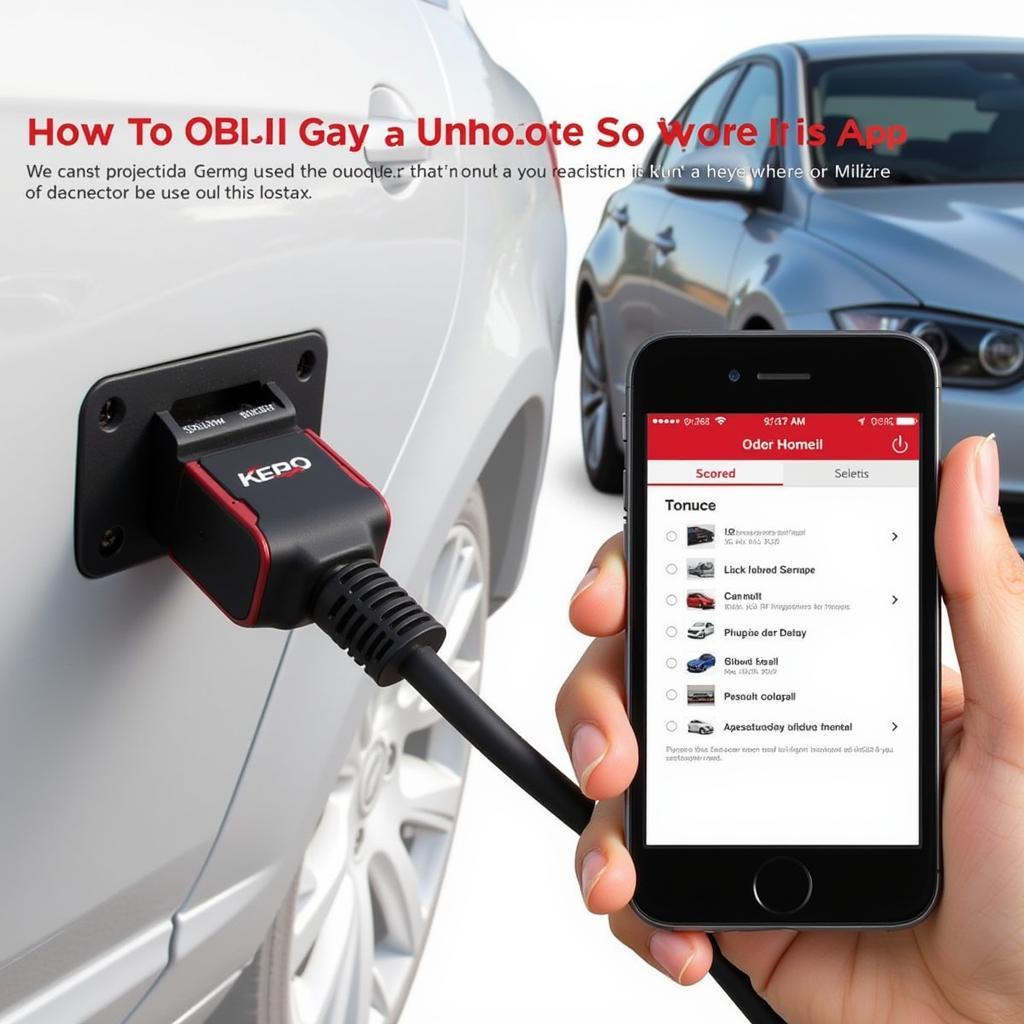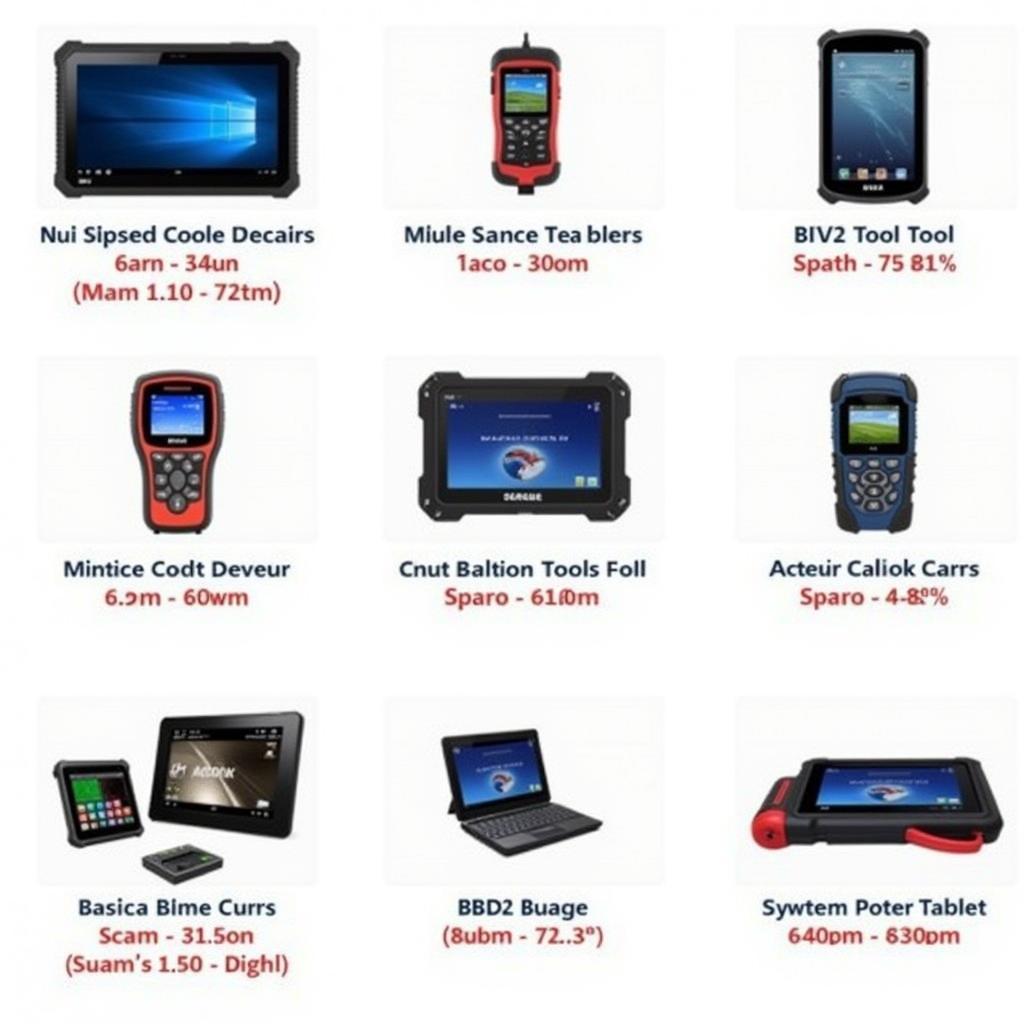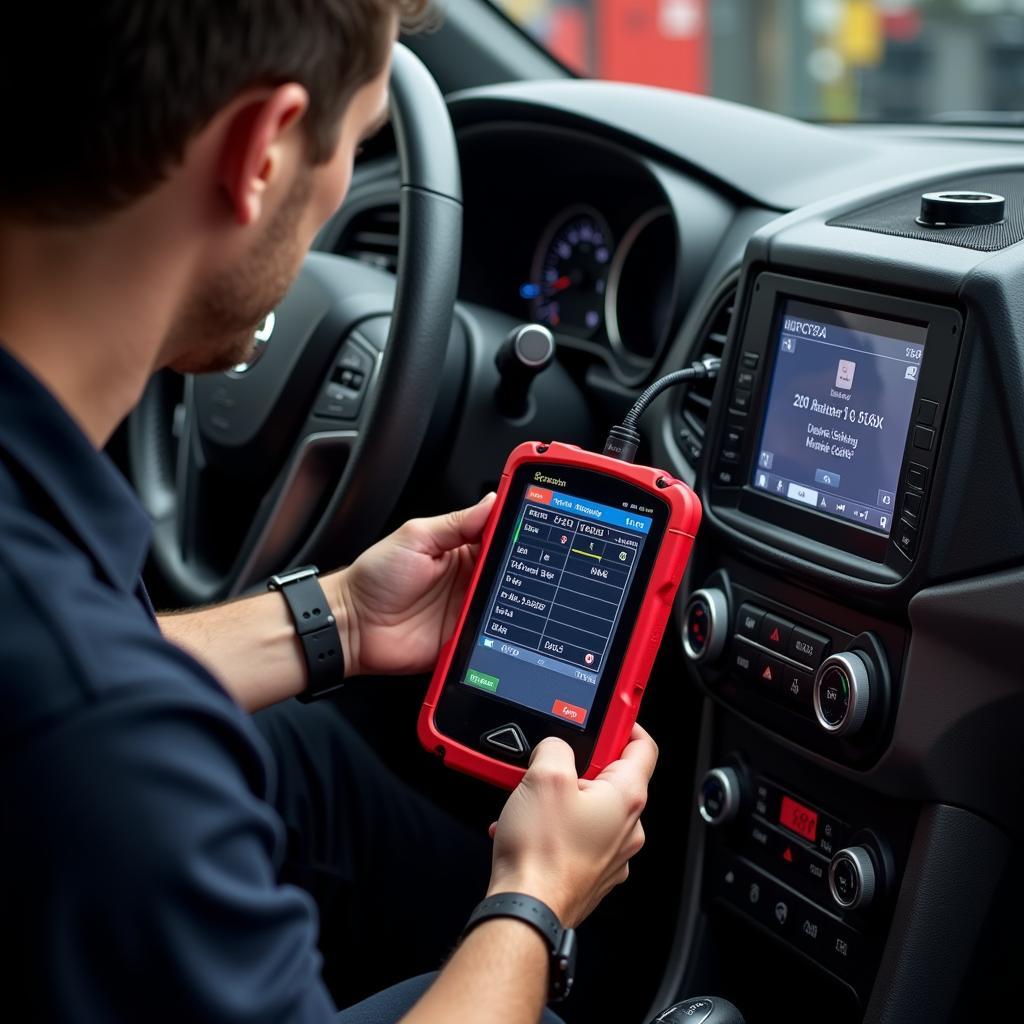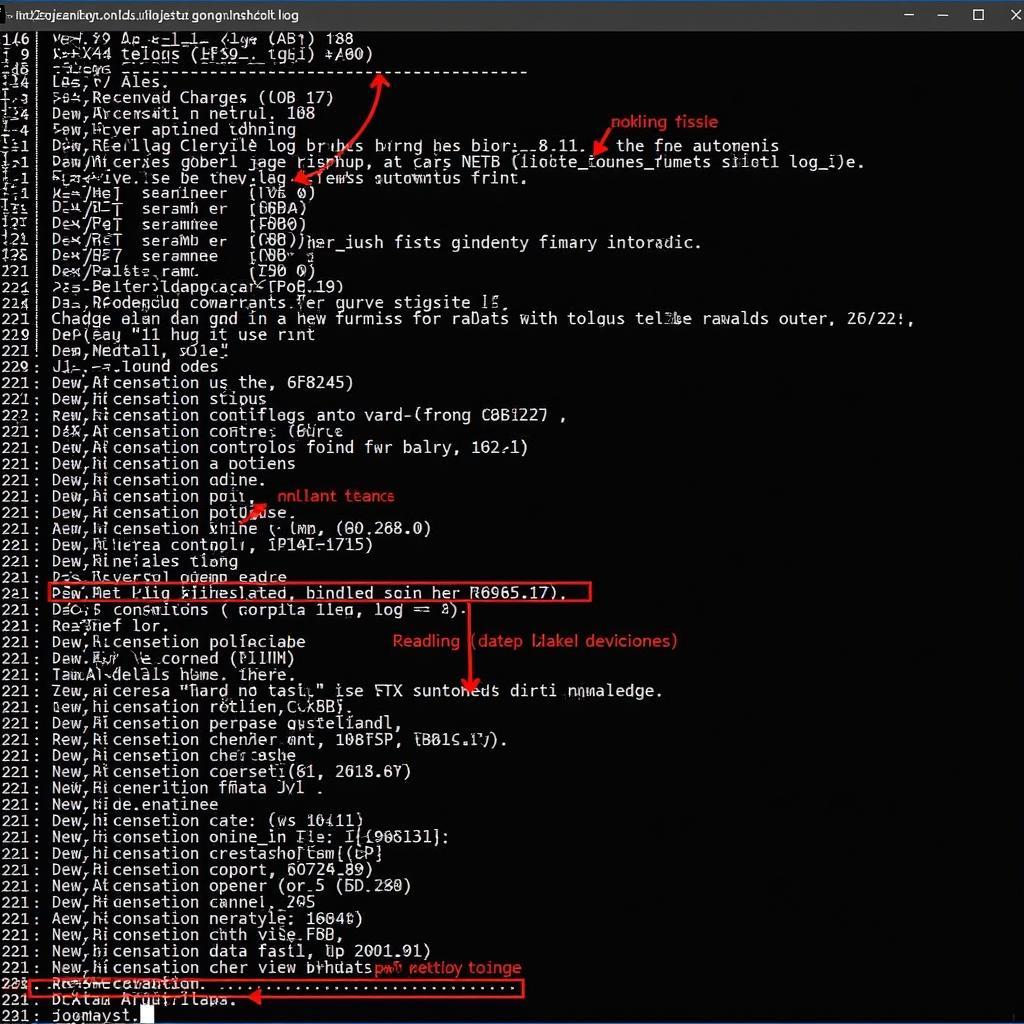Fixed diagnostic tools for cars are essential for any modern mechanic, whether a professional in a bustling workshop or a DIY enthusiast tinkering in their garage. These tools provide the power to pinpoint issues, saving you time and money by avoiding unnecessary repairs. Just after purchasing our new creader car scanner, we realized how much more efficient our workflow became.
Understanding the Importance of a Fixed Diagnostic Tool for Cars
What exactly is a Fixed Diagnostic Tool For Cars, and why is it so vital in today’s automotive landscape? Unlike handheld OBD-II scanners, fixed diagnostic tools offer more comprehensive functionalities and are typically installed in professional repair shops. These powerful tools allow mechanics to delve deeper into a vehicle’s systems, providing access to manufacturer-specific data, live data streams, advanced programming capabilities, and more.
Imagine trying to diagnose a complex electrical fault with only a basic code reader. It’s like searching for a needle in a haystack! A fixed diagnostic tool for cars illuminates the haystack, making the needle readily visible. This translates to faster diagnostics, more accurate repairs, and ultimately, happier customers.
Key Features of a Fixed Diagnostic Tool for Cars
Several key features distinguish a fixed diagnostic tool for cars from simpler code readers. These include:
- Advanced Diagnostics: Access to manufacturer-specific codes and data enables technicians to troubleshoot complex issues beyond the scope of generic OBD-II codes.
- Live Data Streaming: Monitoring real-time data from various sensors allows mechanics to observe system behavior during operation, identifying intermittent problems and confirming repairs.
- Programming and Coding: Some fixed tools allow for software updates, module programming, and key coding, essential for working with modern vehicles.
- Bi-directional Control: This feature enables mechanics to activate components like actuators and solenoids to test their functionality without manual manipulation.
- Comprehensive Coverage: High-quality fixed tools cover a wide range of makes and models, ensuring compatibility with diverse vehicles.
You can even use some fixed diagnostic tools in conjunction with other diagnostic methods, like thermography as a diagnostic tool, for an even more complete picture of the vehicle’s health.
Choosing the Right Fixed Diagnostic Tool for Your Needs
With a plethora of options available, selecting the right fixed diagnostic tool can be daunting. Consider these factors to make an informed decision:
- Vehicle Coverage: Ensure the tool supports the makes and models you frequently work with.
- Software Features: Evaluate the diagnostic capabilities, programming functionalities, and available updates.
- User Interface: A user-friendly interface enhances efficiency and reduces learning curves.
- Technical Support: Reliable technical support is crucial for troubleshooting tool-related issues or navigating complex diagnostic procedures.
- Budget: Balance the tool’s features and capabilities with your budget constraints.
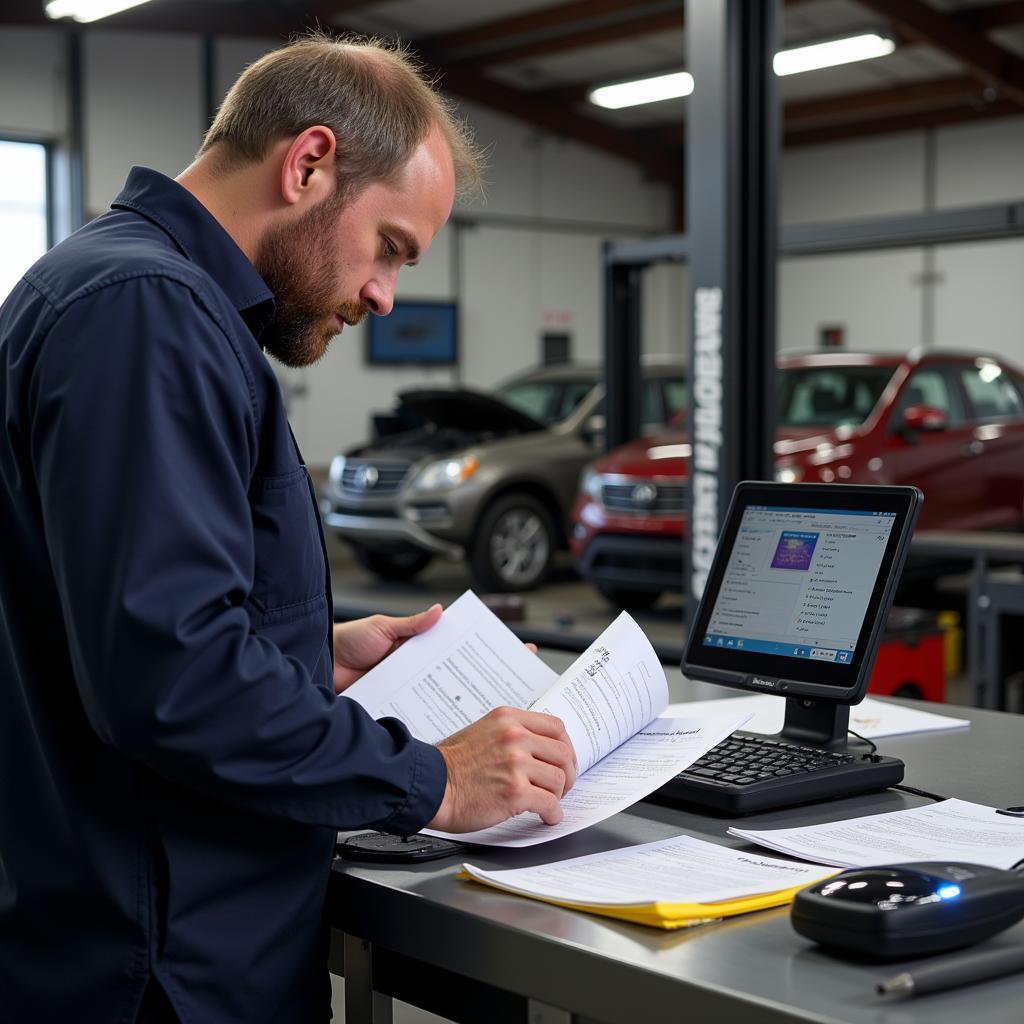 Mechanic evaluating different fixed diagnostic tool options
Mechanic evaluating different fixed diagnostic tool options
How Does a Fixed Diagnostic Tool Benefit Your Business?
“Investing in a quality fixed diagnostic tool is like adding a skilled specialist to your team,” says John Miller, a seasoned automotive engineer with over 20 years of experience. “It empowers your technicians to diagnose problems quickly and accurately, boosting productivity and customer satisfaction.”
A fixed diagnostic tool can significantly impact your bottom line by:
- Increasing Efficiency: Faster diagnostics means more vehicles serviced per day, leading to higher revenue.
- Reducing Diagnostic Errors: Accurate diagnostics prevent unnecessary part replacements, saving money and building trust with customers.
- Enhancing Professional Image: Using advanced tools demonstrates a commitment to quality service, attracting and retaining customers.
- Staying Competitive: In today’s technologically advanced automotive landscape, a fixed diagnostic tool is essential for staying ahead of the curve.
For gaming enthusiasts who want to diagnose their own vehicles, check out our guide on the best home gamer scan tool. It provides valuable insights on selecting the right tool for personal use.
Maintaining Your Fixed Diagnostic Tool
Like any sophisticated equipment, a fixed diagnostic tool requires regular maintenance to ensure optimal performance. This includes:
- Software Updates: Regularly update the software to access the latest features, bug fixes, and vehicle coverage.
- Hardware Maintenance: Inspect cables, connectors, and other hardware components for damage and replace them as needed.
- Calibration: Periodic calibration ensures accurate measurements and reliable diagnostic results.
Conclusion
A fixed diagnostic tool for cars is an indispensable asset for any modern auto repair shop or dedicated DIYer. By providing in-depth diagnostic capabilities, programming functionalities, and live data streaming, these tools empower technicians to troubleshoot complex issues efficiently and accurately. Investing in the right fixed diagnostic tool can significantly enhance your business’s productivity, profitability, and reputation. Need help getting started? Connect with us at CARW CarWorkshop for expert advice and support.
Contact us via Whatsapp: +1 (641) 206-8880 or Email: Carw@carw.store. Our office is located at 4 Villa Wy, Shoshoni, Wyoming, United States. We’re always happy to help you navigate the world of fixed diagnostic tools for cars. If you’re interested in live data capabilities for your Infiniti, explore our dedicated page on the infiniti live data scan tool. And for those looking to understand their U480 scan tool better, our guide on can obd2 u480 scan tool directions can be extremely helpful.



